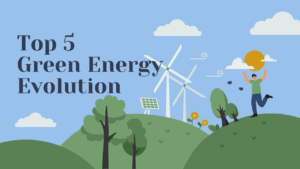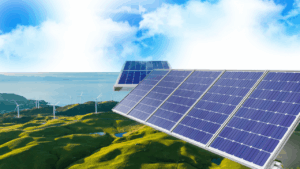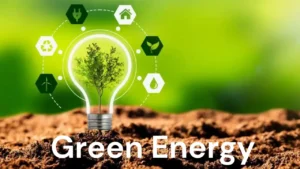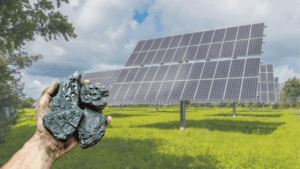People think renewable energy is unrealistic, unreliable, or too expensive. But is that true? Renewable UK has organized a “Setting the Record Straight” panel at Future Energy Wales where it plans to bust this kind of misinformation.

Social media, political narratives, and misunderstandings have spread many myths about renewables. The Renewable UK blog states that some people believe “renewables are responsible for constraint payments,” when in fact, 70%+ of constraint payments go to gas generators.
WRI (World Resources Institute) has also clarified that the clean energy industry has made significant progress in cost reduction, grid integration techniques, and reliability improvements.

In this article, we’ll identify common myths, debunk them with facts, and explain how industry and the public can work together to keep accurate records.
Overview Table
| Article | Setting the record straight on renewables: learn about tackling misinformation at Future Energy Wales |
| Nation | United Kingdom |
| Event / Date | Future Energy Wales, 7-8 October 2025 |
| Issues Addressed | Myths about renewables, grid, cost, reliability, environmental impact |
| Stakeholders | Public, communities, media, policymakers, renewable sector |
Myth: Renewable Energy Is Too Expensive
A major myth is that renewables are too expensive—solar, wind, etc. are just subsidized hype.

WRI has written that over the past decade, renewable energy costs have dropped significantly. Wind and solar are now at non-subsidized competitive levels, in some cases even cheaper than fossil fuels.
Climate Advocacy Lab has also written that when looking at lifecycle costs (installation + operation), renewables are indeed cost-effective.

Fact: Solar and wind projects are now one of the cheapest new power sources in much of the world.
Myth: Renewables Cannot Meet Demand / Are Unreliable
Another commonly repeated misconception is that renewables are useless when there is no wind or sun. But the truth is that grid operators use forecasting, demand response, storage, and a diverse generation mix to manage renewable variability.

WRI has stated that “renewables displace fossil generation”—when solar/wind is available, they back down fossil plants.
The Climate Advocacy Lab has written that only a combination of renewables + storage + grid flexibility can create reliable clean power.
So, the issue of reliability is a myth when we use modern tools.
Myth: Renewable Energy Harms Environment/Wildlife Too Much
Some argue that renewable infrastructure is bad—wind turbines kill birds, use too much land, and manufacturing involves excessive mining.
WRI acknowledges that all power plants (including renewables) have some environmental impact (siting, materials), but lifecycle greenhouse gas emissions are very low compared to fossil fuels.
EarthDay.org has identified five common myths, including that renewables “aren’t clean because manufacturing, disposal, etc.” They respond that over the lifecycle, emissions and environmental impact are much lower for renewables.
The Climate Advocacy Lab also outlines that manufacturing of solar and wind has an impact, but comparative analysis shows that the destruction and emissions of fossil fuels are far worse.
Thus, while environmental care is necessary, claims that renewables are “too harmful” are exaggerated.
Myth: Transition Will Hurt Local Communities / Jobs
Some people think that jobs will disappear from renewables, or local areas will lose because fossil industries shut down.
But WRI data shows that the clean energy sector has already created millions of jobs.
Climate Advocacy Lab analysts say renewable projects often contribute local tax revenue, lease payments to landowners, and economic uplift.
The Renewable UK blog states that in Wales, misinformation about impact on tourism, nature etc. There is much more—but the panel at Future Energy Wales aims to address exactly those concerns with experts from local communities.
So, transition need not be zero-sum; it can be positive for many.
Myth: Renewables Work Only in Ideal Locations / Not Everywhere
People say that renewables will only work in sunny deserts or windy plains, in these places they are feasible.
But WRI has explained that renewable deployment depends on mix, matching generation types (wind + solar + hydro etc.), grid integration and geographical diversity.
Climate Advocacy Lab points out that grid expansion, interconnections, distributed resources enable use of renewables even in less ideal areas.
Renewable UK’s Future Energy Wales conference focus includes grid expansion, deployment across all technologies, ensuring Wales uses its renewable potential.
Thus, with planning and policy, renewables can work widely, not just in prime spots.
Snapshot Table
| Myth | Reality/Fact |
| Renewables are too expensive | Wind & solar costs have dropped; they now compete or beat fossil fuels |
| Renewables unreliable / can’t meet demand | Grid tools, storage, forecasting manage intermittency |
| Renewables harm environment too much | Lifecycle emissions and impacts much lower than fossil fuels |
| Renewable transition kills jobs | Clean energy sector already employs millions; local development boosts economy |
| Renewables only feasible in ideal zones | With grid design, geography diversity, renewables viable in many locations |
Tackling Misinformation: Strategies & Role of Conference
At Future Energy Wales 2025, Renewable UK plans a special session “Fact or Fiction? Setting the record straight” to address myths and build counter-narratives.
They’ll bring local experts: community, planners, energy developers—so public, decision makers, local media get direct facts rather than polarized views.
WRI suggests combating misinformation by publishing clear analytics, transparent grid data, lifecycle assessments and comparing renewables vs fossil honestly.
Climate Advocacy Lab recommends: empower local voices, use narratives that resonate with community concerns, use visuals & stories, not just technical data.
Also, civil society, educators, media must act as fact checkers. Against social media spin, proactive accurate communication matters.
FAQs
1: What will Renewable UK’s Future Energy Wales session do?
They will host panel “Fact or Fiction?” on 8 October, debunk myths, involve local experts and media.
2: Are Wind & solar really displacing fossil fuels?
Yes, when wind/solar power is produced, it fulfils the electricity demand and fossil generation goes back down.
3: Are renewables more carbon during manufacturing?
Manufacturing has an impact, but lifecycle emissions are much lower compared to coal/gas plants.
4: Will the renewable transition harm local communities?
Not necessarily — local revenue, jobs, land leases often benefit communities. Myth of negative impact is exaggerated.

